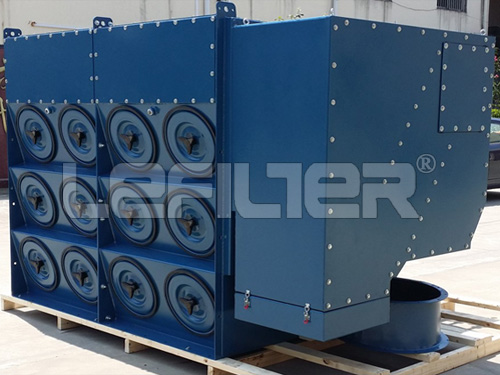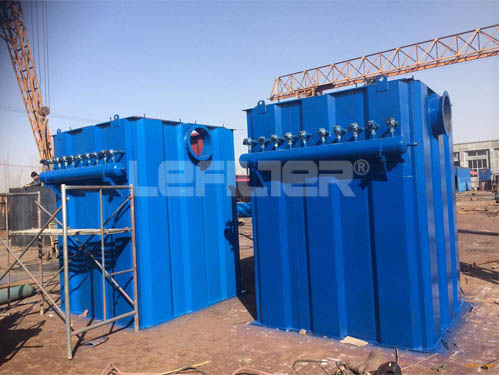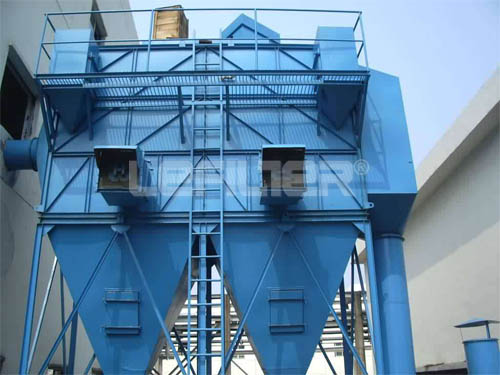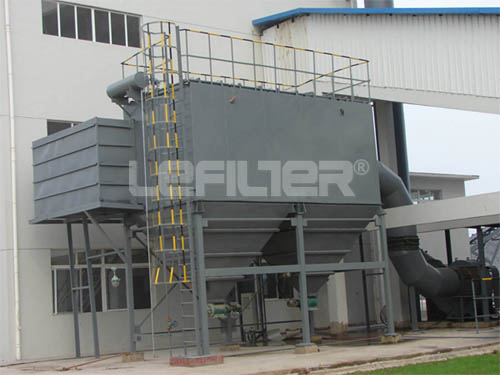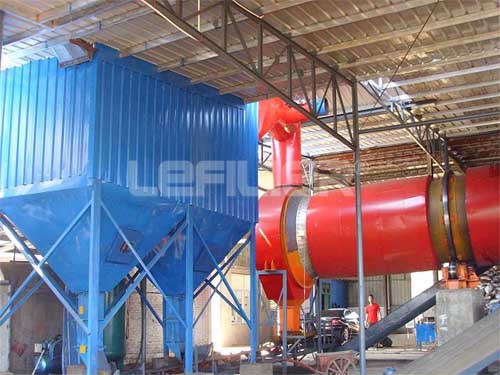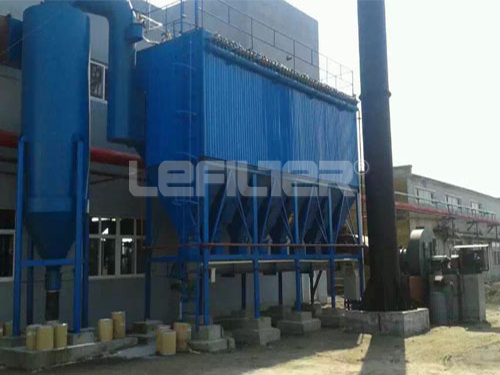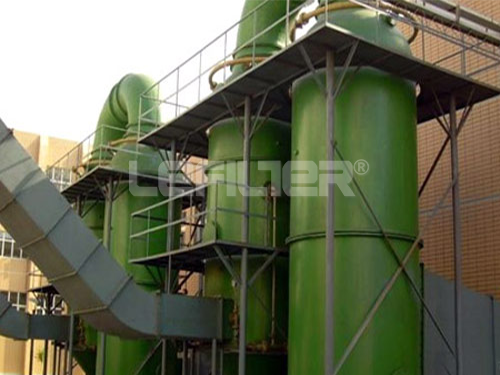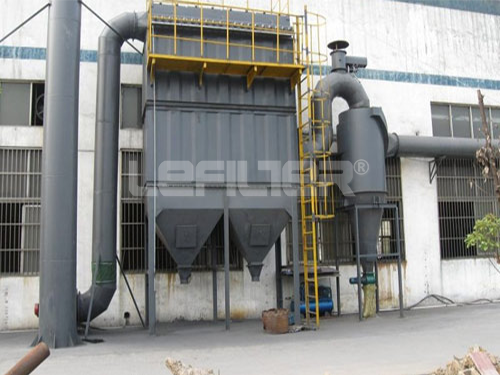First, clarify the usage scenarios and requirements, such as application areas, air flow, etc. Understand the filter performance parameters, including filtration efficiency, resistance, etc. Choose a well-known brand and examine the quality and after-sales service. Consider the cost comprehensively, including equipment price and operating cost, to select a self-cleaning air filter that suits your needs.

Choosing a self-cleaning air filter that suits your needs can be considered from the following aspects:
1. Clarify the usage scenarios and needs
Determine the application field
First, it is necessary to clarify in what environment the self-cleaning air filter will be used. If it is an industrial field, such as a factory workshop, power plant, pharmaceutical factory, etc., it is necessary to consider factors such as dust concentration, particle size, and corrosive substances in the air. If it is a commercial or civil field, such as an office building, a shopping mall, a hospital, etc., it may be more concerned with noise level, appearance design, and the degree of improvement in air quality.
Different application fields have different performance requirements for filters. For example, in an electronics manufacturing plant, it is necessary to efficiently filter tiny particles to prevent damage to electronic products; while in a hospital, in addition to filtering dust, it is also necessary to effectively remove harmful substances such as bacteria and viruses.
Evaluate air flow requirements
Determine the required air flow according to the size of the place of use and the ventilation requirements. This will directly affect the size and filtration efficiency of the filter. If the air flow is too small, it may not meet the needs of indoor air circulation, resulting in poor air quality; if the air flow is too large, it may increase equipment costs and energy consumption.
The required air flow can be estimated by calculating factors such as room volume, number of people, and equipment operation. At the same time, it is also necessary to consider possible future expansion needs and select filters with a certain margin.
Consider special requirements
Some places may have special requirements, such as noise-sensitive areas need to choose low-noise self-cleaning air filters; in flammable and explosive environments, filters with explosion-proof functions must be used; for high-humidity environments, filters with moisture-proof properties may need to be selected.
If there are special air quality requirements, such as removing specific chemicals or odors, filters with corresponding filtering functions need to be selected.

2. Understand the performance parameters of the filter
Filtration efficiency
Filtration efficiency is an important indicator for measuring the performance of self-cleaning air filters. It indicates the ability of the filter to remove pollutants from the air. Common filtration efficiency indicators include primary filtration, medium filtration and high-efficiency filtration. High-efficiency filtration can remove smaller particles and more harmful substances, but usually has greater resistance.
Choose the appropriate filtration efficiency according to actual needs. If the air quality requirements are high, you can choose a high-efficiency filtration filter; if it is just a general ventilation requirement, primary or medium efficiency filtration may be sufficient.
Resistance and pressure loss
The filter will generate a certain resistance during operation, which will affect the air flow and energy consumption of the ventilation system. The smaller the resistance, the lower the operating cost of the ventilation system. At the same time, pressure loss will also affect the service life and self-cleaning effect of the filter.
When choosing a filter, the balance between filtration efficiency and resistance should be considered comprehensively. Generally speaking, the higher the filtration efficiency, the greater the resistance. You can check the product manual or consult the manufacturer to understand the resistance and pressure loss of the filter.
Self-cleaning method and frequency
There are many self-cleaning methods for self-cleaning air filters, such as back-blowing cleaning, vibration cleaning, pulse cleaning, etc. Different self-cleaning methods have different advantages and disadvantages. For example, back-blowing cleaning is simple and reliable, but the cleaning effect may not be as good as pulse cleaning; vibration cleaning is suitable for small filters, but may generate noise.
Self-cleaning frequency is also an important parameter. Too high a self-cleaning frequency may affect the service life of the filter, and too low a frequency may cause a decrease in filtration efficiency. It is necessary to select the appropriate self-cleaning method and frequency according to the actual use.
3. Consider brand and quality
Choose a well-known brand
Well-known brands usually have more reliable product quality and better after-sales service. You can learn about the reputation of different brands by consulting product reviews, consulting industry experts, and referring to the experience of other users.
At the same time, products of well-known brands usually undergo strict quality inspection and certification, such as ISO certification, CE certification, etc., which can guarantee the performance and safety of the products.
Inspect product quality
Carefully check the appearance quality of the filter, including the shell material, welding process, sealing performance, etc. The high-quality filter shell should be sturdy and durable, with firm welding and good sealing to prevent air leakage.
Understand the quality of the filter material of the filter, such as the material, thickness, pore size, etc. of the filter paper. High-quality filter materials should have good filtering performance, durability and corrosion resistance.
After-sales service
Good after-sales service is one of the important factors in choosing a self-cleaning air filter. After-sales service includes installation guidance, commissioning service, maintenance, technical support, etc. Choosing a manufacturer with a complete after-sales service system can ensure that problems encountered during use can be solved in time.
You can understand the manufacturer's after-sales service commitment, response time, distribution of maintenance outlets, etc., so that you can get timely support when needed.
4. Comprehensive consideration of cost factors
Equipment price
The price of self-cleaning air filters varies depending on factors such as brand, performance, and specifications. When choosing a filter, you should make a comprehensive consideration based on your budget and actual needs. Don't just pursue low-priced products, because low-priced products may have quality problems, resulting in poor filtering effect, short service life, high maintenance costs and other problems.
You can choose cost-effective products by comparing the prices of filters of different brands and models.
Operating cost
Operating costs include energy consumption, maintenance costs, and the cost of replacing filter cartridges. Filters with low energy consumption can reduce operating costs; filters that are easy to maintain and replace filter cartridges can reduce maintenance costs.
When choosing a filter, consider the impact of the filter's resistance and self-cleaning method on energy consumption, as well as the service life and price of the filter cartridge. The economic feasibility of different products can be evaluated by calculating long-term operating costs.

In short, choosing a self-cleaning air filter that suits your needs requires comprehensive consideration of multiple aspects such as usage scenarios, performance parameters, brand quality and cost factors. Only by choosing the right filter can you effectively improve air quality, protect people's health and the normal operation of equipment.
Other Related Products:
Self-cleaning air filter
Cartridge Dust Collector
High temperature metal membrane filter cartridge dust collector
{sval:sql sql='SELECT n_parameter FROM dede_addonarticle WHERE aid = ~aid~ ' } {/sval:sql}
{sval:sql sql='SELECT n_parameter FROM dede_addonarticle WHERE aid = ~aid~ ' } {/sval:sql}










